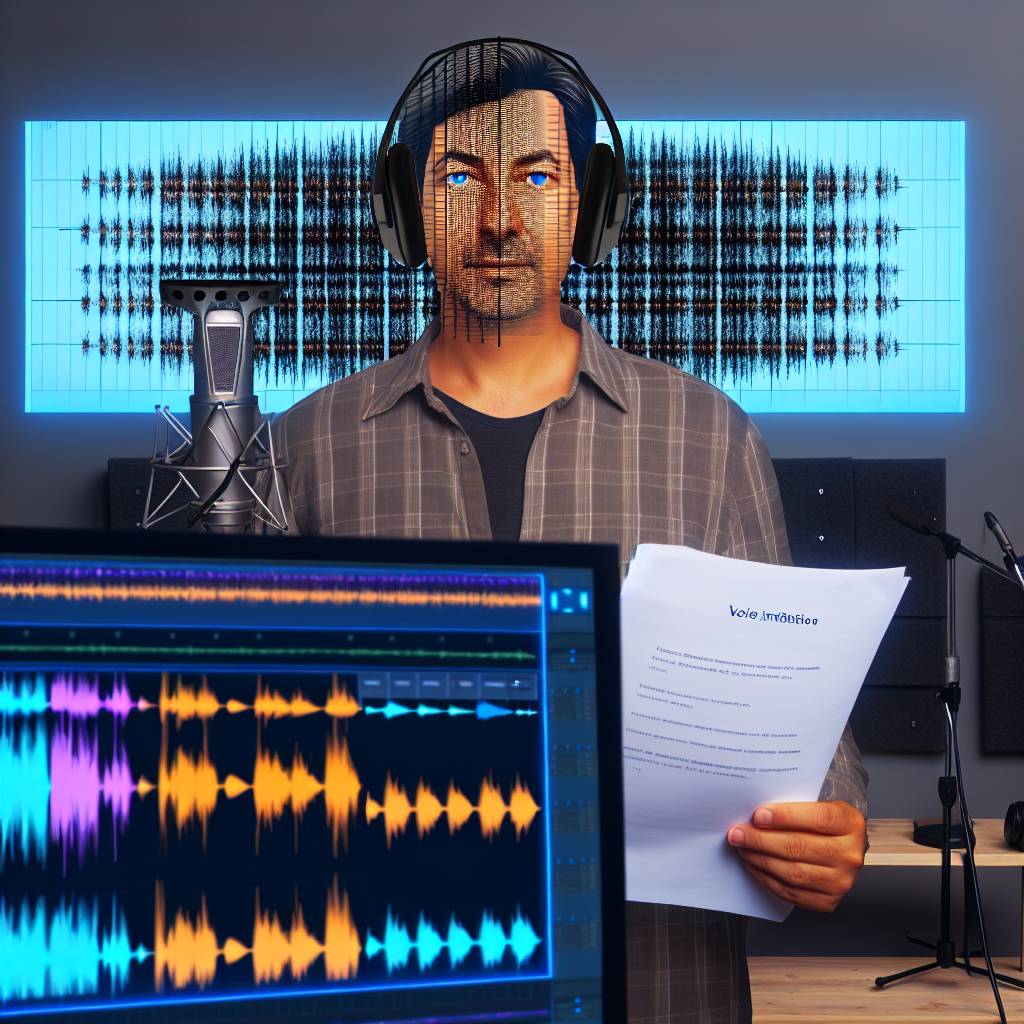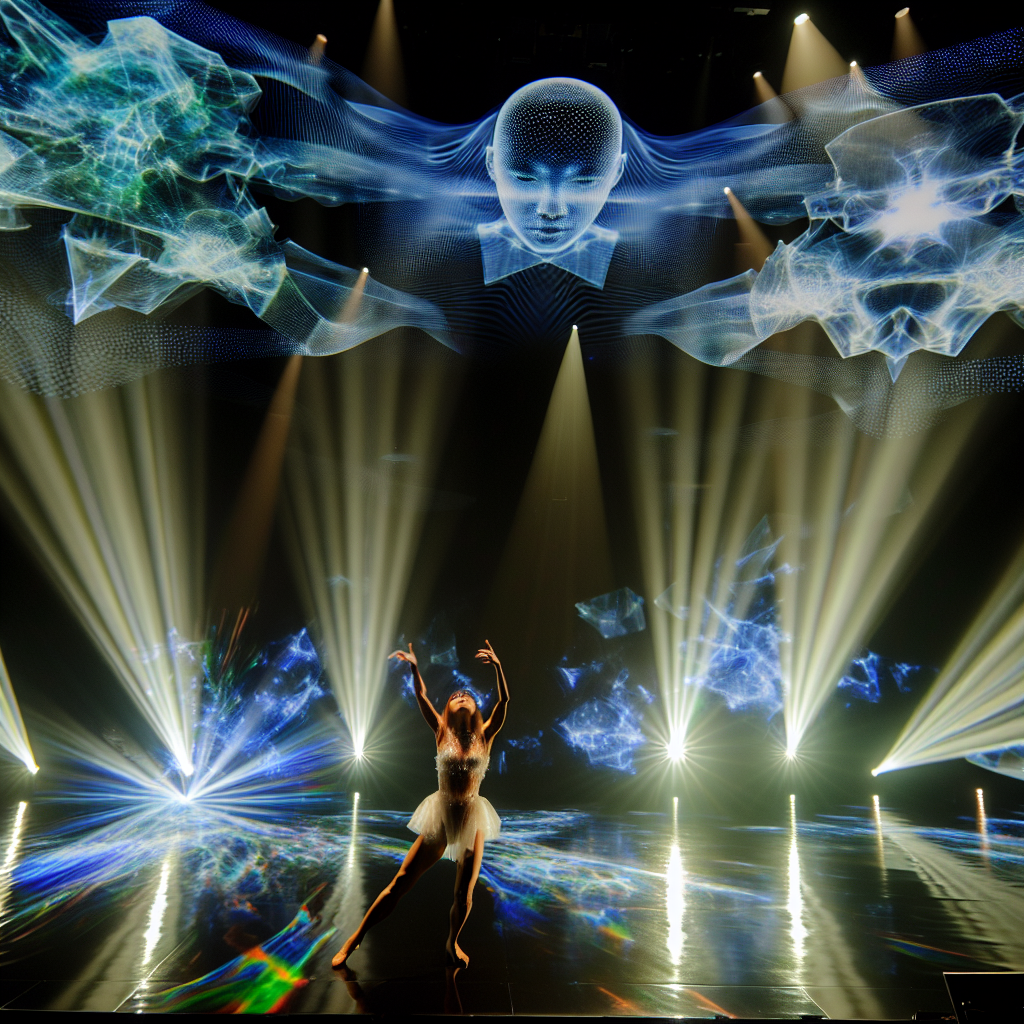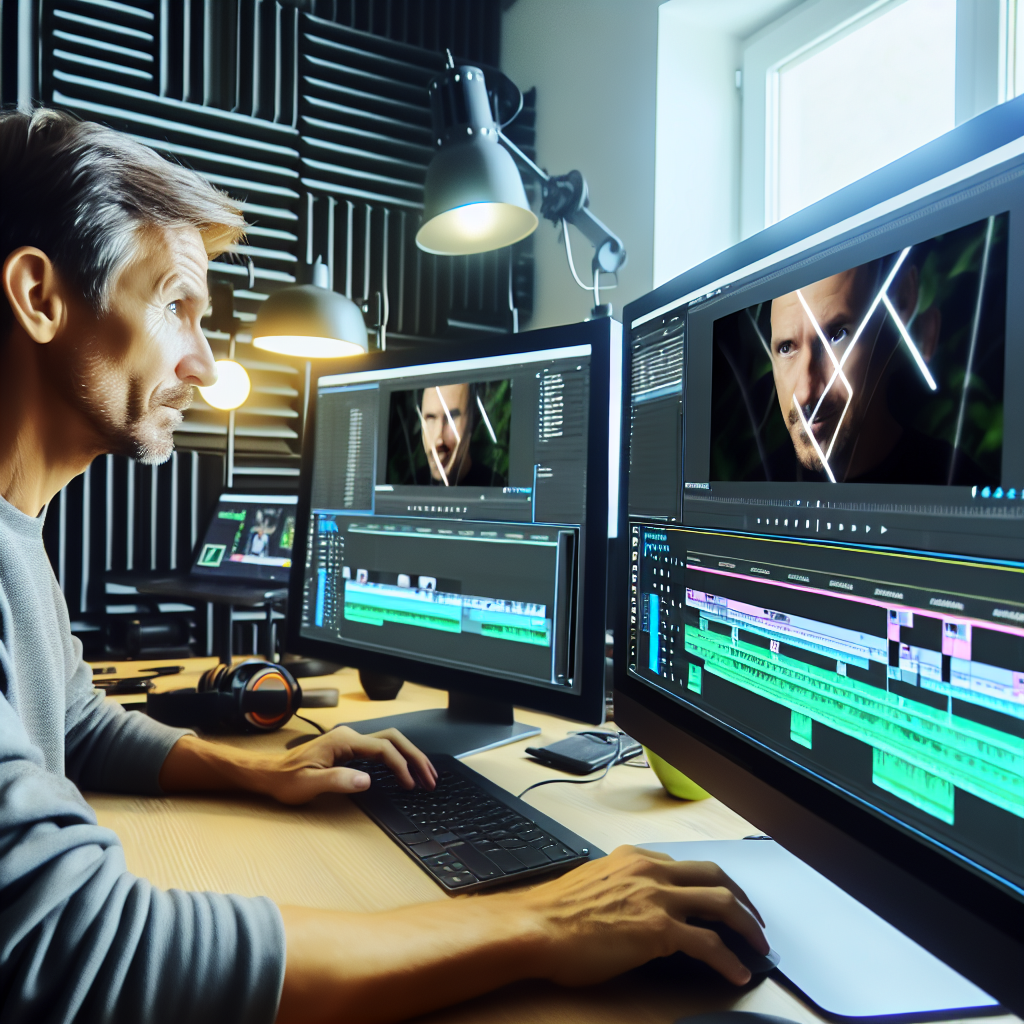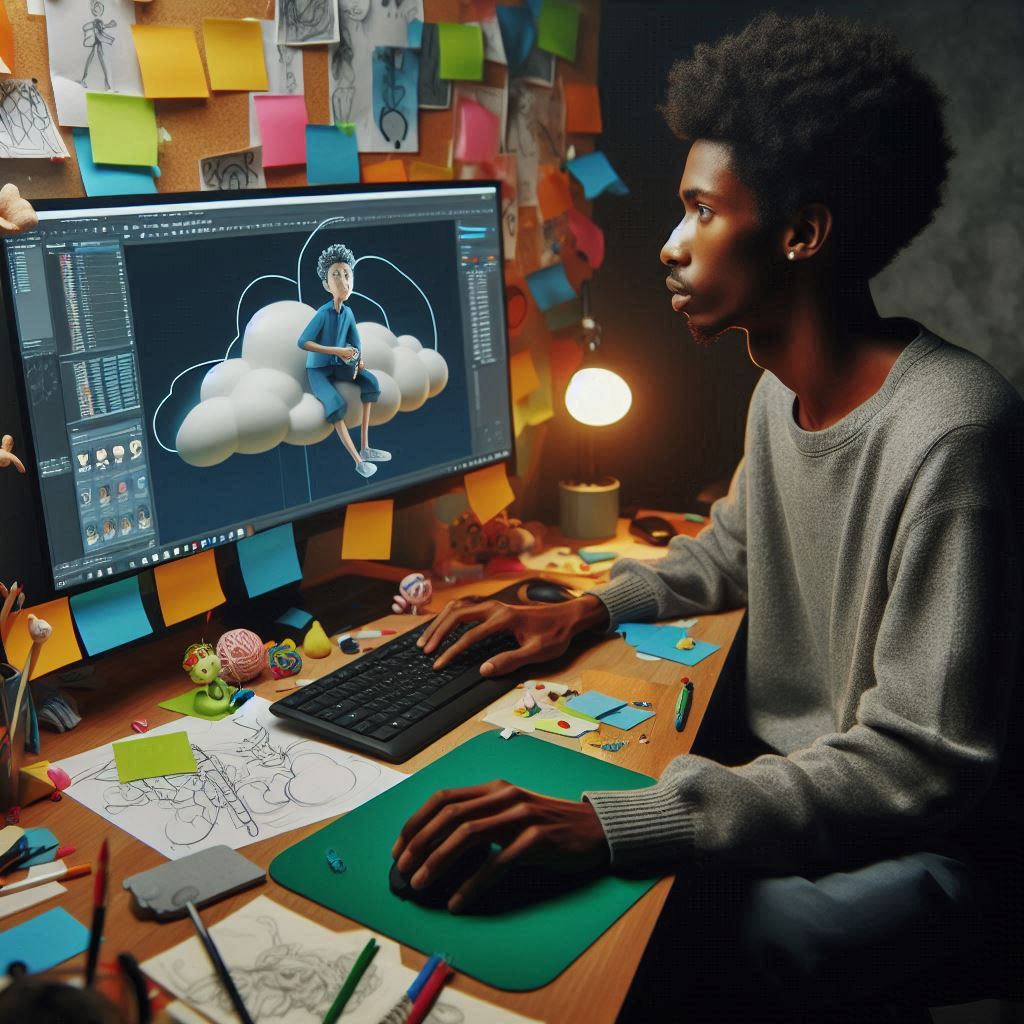Introduction to AI Voice Cloning
AI voice cloning refers to the process of creating a digital replica of a person’s voice.
This technology utilizes deep learning algorithms to analyze voice patterns.
Through this analysis, it generates a synthetic voice that closely resembles the original speaker.
Voice cloning has gained significant attention in various industries.
Primarily, it is transforming the fields of dubbing and voiceovers.
Understanding How AI Voice Cloning Works
The process begins with collecting voice data from the target speaker.
This data includes recordings of the speaker reading diverse texts.
High-quality recordings provide better results in voice reproduction.
Subsequently, AI models are trained using this data to learn vocal nuances.
These nuances include tone, pitch, and emotional expressions.
Once trained, the AI can generate new speech that mimics the speaker’s voice.
Applications in Dubbing and Voiceovers
AI voice cloning has numerous applications in entertainment and media.
One primary use is in dubbing foreign films for local audiences.
It ensures that audiences hear familiar voices, enhancing their experience.
Moreover, it can save time and resources compared to traditional dubbing methods.
Voiceovers for commercials and audiobooks also benefit from this technology.
Advertisers can maintain brand identity by using the same voice across platforms.
Ethical Considerations and Challenges
As with any advanced technology, ethical concerns arise with voice cloning.
One critical issue involves consent from individuals whose voices are cloned.
Using someone’s voice without approval can lead to potential exploitation.
Additionally, there are concerns about misinformation and authenticity.
Deepfake technology could misuse voice cloning in harmful ways.
Therefore, establishing regulatory frameworks becomes essential for its responsible use.
The Technology Behind AI Voice Cloning
Understanding AI Voice Cloning
AI voice cloning utilizes advanced algorithms and machine learning techniques.
It can create highly realistic replicas of human voices.
This technology analyzes vocal characteristics in depth.
Machine learning models examine pitch, tone, and accent.
The process starts with collecting a voice sample.
The Process of Voice Cloning
First, engineers gather voice recordings from the subject.
High-quality audio files are crucial for optimal results.
Next, the system extracts unique features from the recordings.
These features include inflection patterns and emotional cues.
Subsequently, the AI compiles the data into a voice template.
The Role of Neural Networks
Neural networks are at the heart of voice cloning technology.
They model complex patterns in audio data effectively.
We Design & Develop Websites, Android & iOS Apps
Looking to transform your digital presence? We specialize in creating stunning websites and powerful mobile apps for Android and iOS. Let us bring your vision to life with innovative, tailored solutions!
Get Started TodayThese networks learn by processing vast amounts of information.
Therefore, they improve over time through continuous learning.
AI models can generate new speech that mimics the original voice.
Applications in the Industry
AI voice cloning has numerous potential applications.
One major area is dubbing for films and television shows.
This technology allows for faster localization of content.
Additionally, it can create personalized voice assistants.
It may even enhance video game character dialogues.
Ethical Considerations
The technology raises ethical questions about authenticity.
Using someone’s voice without consent is a concern.
Furthermore, there is potential for misuse in creating deepfakes.
Industry stakeholders advocate for clear regulations.
Responsible use of AI voice cloning remains essential.
Applications of Voice Cloning in the Film Industry
The Rise of Voice Cloning Technology
Voice cloning technology has made significant advancements in recent years.
It allows for the creation of lifelike synthetic voices.
Moreover, these voices can mimic the style and emotion of the original actors.
This capability revolutionizes the dubbing and voiceover process.
Case Study: Dubbing in Foreign Films
Dubbing is a common practice in the global film industry.
Traditionally, it requires voice actors to match the original performances.
However, voice cloning offers a new approach to this challenge.
With voice cloning, filmmakers can use an actor’s natural voice for any language.
This practice ensures consistency in character portrayal.
Benefits of Voice Cloning for Actors
First, voice cloning saves time during the dubbing process.
Actors no longer need to re-record their lines in different languages.
This efficiency reduces the overall production costs for filmmakers.
Additionally, voice cloning allows actors to reach a broader audience.
It enables them to be part of international productions seamlessly.
Challenges Facing the Industry
Despite its advantages, voice cloning does raise ethical concerns.
Questions about copyright and consent are at the forefront.
Furthermore, the authenticity of performances may be compromised.
Audiences might prefer the original human touch in voice acting.
Future Prospects of Voice Cloning
As technology continues to evolve, so do its applications.
Future developments may enhance the emotional range of synthetic voices.
Moreover, these advancements could lead to greater acceptance in the industry.
Filmmakers are likely to explore innovative ways to use voice cloning.
We Design & Develop Websites, Android & iOS Apps
Looking to transform your digital presence? We specialize in creating stunning websites and powerful mobile apps for Android and iOS. Let us bring your vision to life with innovative, tailored solutions!
Get Started TodayThis approach may redefine how stories are told across languages.
See Related Content: Holographic Performance Software: Redefining Live Shows with 3D Projections
The Benefits of Using AI Voice Cloning for Actors and Studios
Enhancing Dubbing Quality
AI voice cloning significantly improves dubbing quality.
It replicates actors’ voices with remarkable accuracy.
This technology captures the emotional nuances of performances.
As a result, audiences experience a more authentic viewing experience.
Increasing Efficiency in Production
AI voice cloning streamlines production processes effectively.
Studios can reduce time spent on recording voiceovers.
Additionally, fewer reshoots are needed when adjustments occur.
This efficiency leads to cost savings over time.
Expanding Language Accessibility
Voice cloning technology enables studios to reach global audiences.
Actors can have their performances translated into multiple languages.
This enhances the marketability of films and series worldwide.
Consequently, more viewers can connect with diverse narratives.
Preserving Actors’ Voices
AI voice cloning offers a way to preserve actors’ voices for future use.
This ensures their legacy continues beyond their physical presence.
Furthermore, iconic voices can remain in new projects indefinitely.
It provides opportunities for posthumous performances as well.
Facilitating Creative Exploration
AI voice cloning opens doors for creative innovation in storytelling.
Writers can experiment with different voice styles without constraints.
This flexibility can lead to unprecedented artistic collaborations.
Additionally, diverse character portrayals become easily achievable.
Discover More: Automated Video Editing Software for Content Creators in the Short-Form Era
Ethical Considerations and Concerns in AI Voice Cloning
Impact on Employment
AI voice cloning technology dramatically affects job opportunities for voice actors.
Many fear that studios may opt for cheaper AI alternatives over human talent.
This change may lead to widespread job losses in the voice industry.
Furthermore, the need for live voiceovers may diminish as technology improves.
Consent and Ownership
Deciding who owns an AI-generated voice raises significant ethical concerns.
Using a person’s voice without their consent can lead to legal repercussions.
Actors must protect their vocal likeness from unauthorized cloning.
Moreover, the industry must establish clear guidelines for voice ownership.
Authenticity and Artistic Integrity
AI voice cloning challenges the concept of artistic authenticity.
Viewers may struggle to connect with artificial performances.
The emotional depth of a human actor might be impossible to replicate.
Additionally, this technology may dilute the importance of individual artistry.
We Design & Develop Websites, Android & iOS Apps
Looking to transform your digital presence? We specialize in creating stunning websites and powerful mobile apps for Android and iOS. Let us bring your vision to life with innovative, tailored solutions!
Get Started TodayMisuse and Misinformation
AI voice cloning can potentially facilitate harmful activities.
Creating fake audio recordings could be used to spread misinformation.
This misuse poses risks to public figures and can disrupt societal trust.
Therefore, ethical safeguards are essential to prevent such scenarios.
Regulation and Industry Standards
The rapid advancement of AI voice cloning necessitates robust regulations.
Industry standards must evolve to address ethical considerations.
Clear guidelines can help ensure ethical practices around voice cloning.
Collaboration between creators and policymakers will promote responsible use.
See Related Content: Augmented Reality (AR) Tools for Interactive Movie Marketing Campaigns
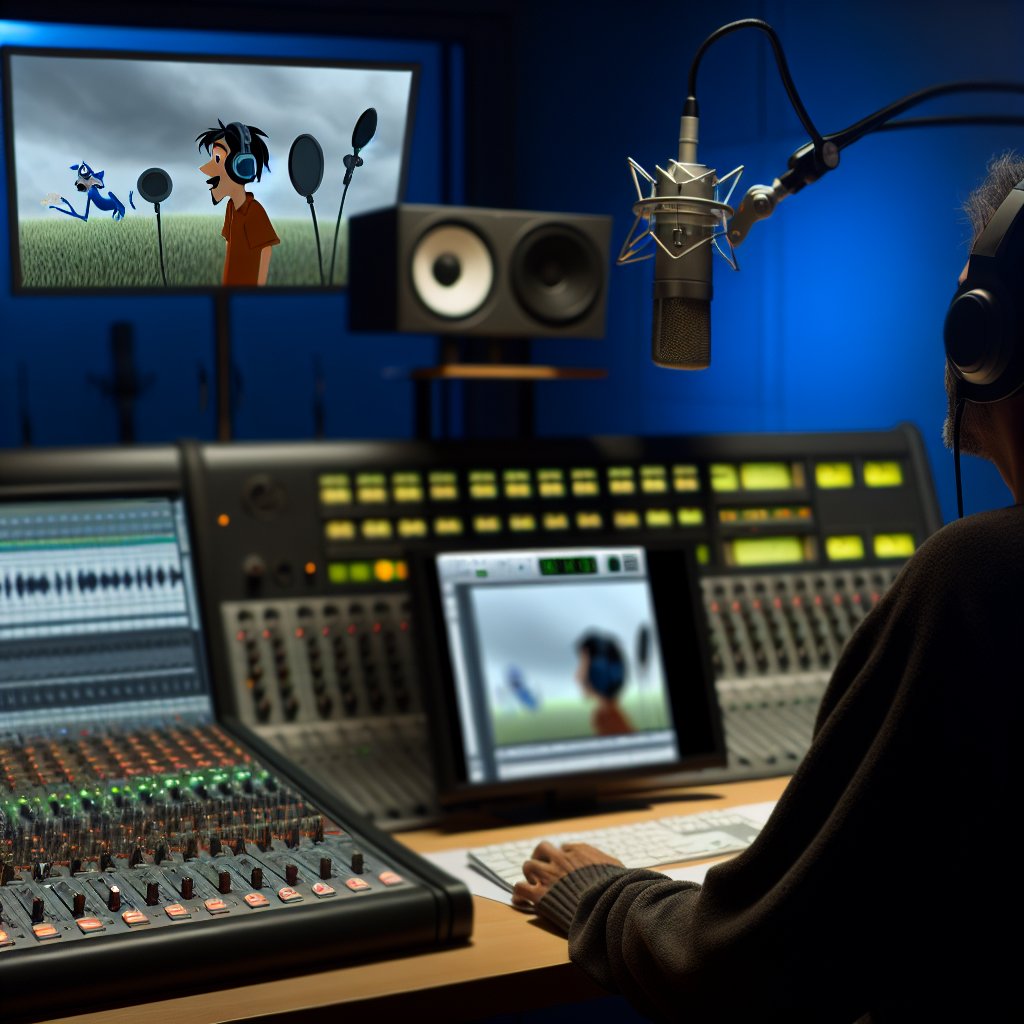
Future Trends in AI Voice Technologies and Their Impact on Voiceovers
Advancements in Voice Cloning
AI voice cloning technology continues to evolve rapidly.
Recent developments enhance the realism of synthetic voices.
Leading companies invest heavily in voice synthesis research.
These advancements result in more expressive vocal performances.
Actors can benefit from more personalized and flexible voiceovers.
Integration with Interactive Media
AI voice technologies integrate seamlessly with interactive media.
Video games utilize voice cloning for character dialogues.
Conversational AI systems enhance user experiences with unique voices.
This integration increases immersion in digital environments.
Actors can explore new avenues in voice acting through interactivity.
Cost Efficiency and Accessibility
AI voice cloning reduces production costs significantly.
It allows smaller studios access to high-quality voiceovers.
This democratization of voiceover services benefits emerging talent.
Actors can produce work independently without major studio backing.
Furthermore, it streamlines the dubbing process for international markets.
Ethical Considerations and Regulations
As voice cloning grows, ethical implications arise.
Concerns about consent and ownership of digital voices emerge.
Industry leaders advocate for clear regulations on voice usage.
Respect for actors’ identities must remain paramount in discussions.
Stakeholders must establish guidelines to protect all parties involved.
Opportunities for Collaboration
AI voice technologies foster collaboration between artists and engineers.
Voice actors can partner with tech companies to create new products.
This collaboration includes expanding libraries of cloned voices.
Such initiatives create unique business opportunities for actors.
Moreover, joint projects can push creative boundaries in storytelling.
Gain More Insights: Cloud-Based Animation Software: Streamlining Production for Small Studios
We Design & Develop Websites, Android & iOS Apps
Looking to transform your digital presence? We specialize in creating stunning websites and powerful mobile apps for Android and iOS. Let us bring your vision to life with innovative, tailored solutions!
Get Started TodayComparing Traditional Dubbing with AI Voice Cloning
Understanding Traditional Dubbing
Traditional dubbing has been the norm in film and television for decades.
It involves replacing the original dialogue with a new language’s voiceover.
Typically, professional voice actors perform the lines.
This method maintains the emotional context of the performance.
Advantages of Traditional Dubbing
Many fans appreciate the authenticity of dubbed performances.
Skilled actors can deliver nuanced emotions effectively.
Additionally, dubbing can enhance the viewer’s experience.
- It allows for a faithful recreation of the original audio.
- Professional voice actors bring their unique interpretations.
- High-quality audio production often leads to better sound clarity.
Disadvantages of Traditional Dubbing
Despite its benefits, traditional dubbing has notable drawbacks.
Scheduling and coordination with actors can become complicated.
Accordingly, this often leads to extended production timelines.
Additionally, cultural nuances may get lost in translation.
Exploring AI Voice Cloning
AI voice cloning represents a revolutionary shift in voiceover work.
This technology utilizes algorithms to mimic human voices.
It can replicate an actor’s voice with high accuracy.
Such capabilities can be applied across multiple dialects and languages.
Advantages of AI Voice Cloning
AI voice cloning offers several significant advantages.
Firstly, it drastically reduces production time and costs.
Moreover, it eliminates the need for voice actors to be physically present.
- Content creators can quickly adapt productions for international audiences.
- Consistency in voice quality can be easily maintained.
- Clone voices can be adjusted for emotional tone as required.
Disadvantages of AI Voice Cloning
On the other hand, AI voice cloning raises valid concerns.
One primary issue is the ethical implications of voice replication.
Furthermore, it may lack the emotional depth provided by human actors.
Audiences might feel disconnected from AI-generated performances.
Future Outlook
The future of dubbing and voiceovers is evolving rapidly.
As AI technology improves, it will become an essential tool.
However, the industry must balance technology with human artistry.
Ultimately, both methods may coexist and serve different purposes.
Real-world Examples of AI Voice Cloning Success Stories in Dubbing and Voiceovers
Transforming the Animation Industry
Companies like Uncanny Valley have utilized AI voice cloning in animated films.
This technology enhances character authenticity in different languages.
For instance, the animated movie “The Lost Kingdom” featured AI-generated voices.
The creators easily localized dialogue for various markets.
AI voice cloning saved both time and resources during production.
Reviving Iconic Performances
In a groundbreaking project, Alchemy Studios revived legendary actors’ voices.
They used archived recordings to recreate performances for new films.
The result was a tribute to classic cinema while introducing fresh narratives.
Fans of the original works praised the seamless integration of voices.
We Design & Develop Websites, Android & iOS Apps
Looking to transform your digital presence? We specialize in creating stunning websites and powerful mobile apps for Android and iOS. Let us bring your vision to life with innovative, tailored solutions!
Get Started TodayVideo Game Voiceovers
Video game companies increasingly adopt AI voice cloning for character dialogues.
A notable example is “Elysium Chronicles,” a popular RPG.
Developers used AI to create diverse voice sets for characters.
This approach enabled more personalized gaming experiences.
Players appreciated the dynamic interactions with AI-generated voices.
Documentary Narration
AI voice cloning has changed how documentaries deliver content.
Producers utilize this technology to narrate in multiple accents and languages.
A recent documentary series, “Voices of the Earth,” demonstrated this effectively.
The result was a richer viewing experience for global audiences.
Viewers noted the engaging and diverse presentation of the material.
Commercial Advertisements
Advertising agencies are leveraging AI voice cloning to target audiences better.
For example, “Global Gadgets” used cloned voices for ad campaigns.
This strategy allowed the brand to appeal to local consumers worldwide.
Listeners felt a personal connection due to relatable voice choices.
Technical Innovations and Future Implications
Many companies continue to innovate in AI voice cloning technology.
Startups like VocalForge are focusing on ethical practices and transparency.
They prioritize obtaining consent from original voice actors.
This approach ensures respect for artistic integrity and rights.
As voice cloning technology evolves, it opens new avenues in entertainment.
Actors and creators are optimistic about collaborations with AI voice tools.
Additional Resources
AI and Voice Acting: Will AI Replace Voice Actors?
#ai #dubbing #contentcreation | Ayushman Dash
Before You Go…
Hey, thank you for reading this blog post to the end. I hope it was helpful. Let me tell you a little bit about Nicholas Idoko Technologies.
We help businesses and companies build an online presence by developing web, mobile, desktop, and blockchain applications.
We also help aspiring software developers and programmers learn the skills they need to have a successful career.
Take your first step to becoming a programming expert by joining our Learn To Code academy today!
Be sure to contact us if you need more information or have any questions! We are readily available.
Put Your Tech Company on the Map!
Get featured on Nicholas Idoko’s Blog for just $200. Showcase your business, boost credibility, and reach a growing audience eager for tech solutions.
Publish Now

